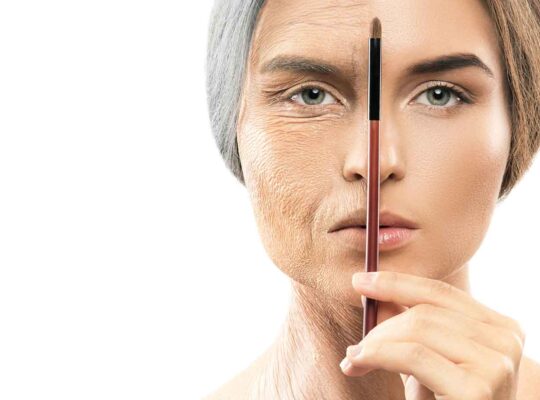How Does Sleep Deprivation Contribute to Weight Gain and Obesity? Uncovering the Science Behind Sleep and Metabolism.
Have you ever wondered why sleep is so important for your health? Getting enough sleep isn’t just about feeling awake and alert. Sleep affects everything in your body, from how your brain works to how your body repairs itself. It also plays a big role in managing your weight.
While most people know that eating healthy and exercising are important for controlling weight, not many realize that sleep is just as important. So, how does not getting enough sleep lead to weight gain and obesity? Research shows that when you’re sleep-deprived, your body’s balance is thrown off, affecting things like your hunger, metabolism, and how active you feel. Let’s break down how lack of sleep can contribute to gaining weight.
The Science of Sleep: How Sleep Regulates Hormones
Hormones That Influence Hunger and Metabolism
When you sleep, your body balances two important hormones that control hunger: leptin and ghrelin.
- Leptin is the hormone that signals your brain when you’re full. It helps you stop eating when you’ve had enough.
- Ghrelin is the hormone that makes you feel hungry. It tells your brain that it’s time to eat.
In a well-rested person, these hormones work in balance, helping to control hunger and prevent overeating. But when you don’t get enough sleep, these hormones get out of sync. Leptin levels drop, so you don’t feel as full after eating. At the same time, ghrelin levels go up, making you feel hungrier than you actually are.
Hormonal Imbalance Table: Well-Rested vs. Sleep-Deprived
| Hormone | Well-Rested (7-9 hours) | Sleep-Deprived (<5 hours) |
|---|---|---|
| Leptin | High (signals fullness) | Low (increased hunger) |
| Ghrelin | Low (reduces hunger) | High (increased appetite) |
This imbalance makes you more likely to overeat, especially unhealthy foods, which can lead to weight gain.
Impact of Sleep Deprivation on Metabolism
How Sleep Loss Slows Metabolism
Sleep also plays a key role in how your body uses food for energy. When you don’t get enough sleep, your metabolism—the process your body uses to turn food into energy—slows down. This means your body doesn’t burn calories as efficiently, so it’s more likely to store extra food as fat.
Sleep deprivation also affects your body’s insulin sensitivity. Insulin is a hormone that helps your body use sugar (glucose) from the food you eat. When you’re sleep-deprived, your body becomes less sensitive to insulin, which causes higher blood sugar levels. Over time, this can lead to weight gain and increase your risk of developing type 2 diabetes.
Increased Cravings and Poor Food Choices
How Sleep Affects Food Cravings
When you’re tired, have you ever noticed that you crave junk food like chips, sweets, or fast food? That’s because being sleep-deprived makes you crave high-calorie, sugary, and carb-heavy foods. These foods give you a quick burst of energy, but they also cause you to gain weight when eaten too often.
On top of that, sleep deprivation increases your stress levels, which makes your body crave comfort foods. Comfort foods are often full of sugar, fat, and calories, which make it even harder to stick to a healthy diet when you’re running low on sleep.
Reduced Physical Activity Due to Fatigue
How Lack of Sleep Reduces Energy and Activity Levels
When you don’t get enough sleep, you feel exhausted—and that affects how active you are. Being tired makes you less motivated to exercise or even move around much during the day. You’re more likely to sit around or skip your workout when you’re feeling sleepy.
This lack of activity creates a vicious cycle: the less sleep you get, the more tired you feel, which leads to less physical activity. The less active you are, the more weight you gain, and the harder it becomes to stay healthy and fit.
Sleep Deprivation, Obesity, and Long-Term Health Risks
The Connection Between Sleep, Obesity, and Chronic Health Issues
Not only can lack of sleep cause weight gain, but it also increases your chances of developing serious health problems that are linked to obesity. These health risks include:
- Type 2 diabetes: As mentioned earlier, poor sleep makes it harder for your body to control blood sugar, increasing your risk of diabetes.
- Heart disease: Carrying extra weight puts more stress on your heart, which can lead to heart problems.
- High blood pressure: Lack of sleep and weight gain can both cause hypertension, which is when your blood pressure is too high.
These health problems can get worse over time if you don’t get enough sleep, making it even more important to prioritize good rest.
Prioritizing Sleep for Better Health
In summary, sleep deprivation plays a major role in weight gain and obesity. When you don’t get enough sleep, it messes with your hunger hormones, slows your metabolism, increases cravings for unhealthy food, and makes you too tired to be active. All of these factors combined can lead to weight gain, and in the long run, increase your chances of developing obesity-related health problems like diabetes and heart disease.
The good news is that by prioritizing sleep, you can help prevent weight gain and improve your overall health. Aim for 7-9 hours of sleep each night, and follow these tips to improve your sleep habits:
- Stick to a sleep schedule: Go to bed and wake up at the same time every day.
- Limit screen time: Avoid using phones, computers, or TVs for at least an hour before bed.
- Avoid caffeine in the evening: Caffeine can keep you awake for hours, so try not to have any after lunchtime.
By making sleep a priority, you’ll not only feel better and more energized, but you’ll also have an easier time maintaining a healthy weight.
FAQ
- Can not getting enough sleep cause weight gain?
- Yes, lack of sleep disrupts hormones that control hunger and metabolism, leading to weight gain.
- How does sleep affect hunger?
- Sleep regulates hormones like leptin and ghrelin that control how hungry you feel. Not enough sleep can make you feel hungrier.
- Why do I crave junk food when I’m tired?
- When you’re tired, your body craves high-calorie foods for quick energy, making it harder to resist unhealthy snacks.
- How does being sleep-deprived affect exercise?
- When you’re sleep-deprived, you feel tired and less motivated to exercise, which can lead to weight gain.
- What health risks come with sleep deprivation and obesity?
- Sleep deprivation and obesity can increase the risk of serious conditions like type 2 diabetes, heart disease, and high blood pressure.






